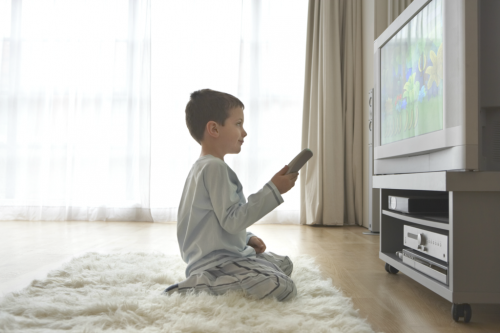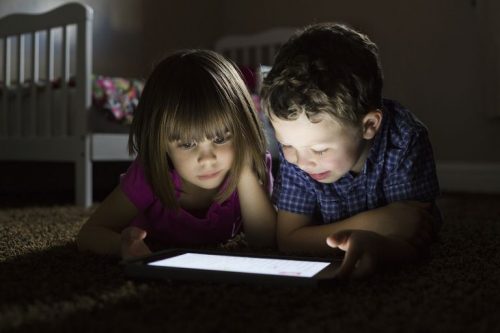Why You Shouldn’t Make Technology Your Kid’s Babysitter
We like the convenience technological advancements like the internet and handheld gadgets afford us. Admittedly, their advantages are seemingly endless. And as their entertainment values are high, parents have turned to them as expedient babysitting alternatives to their kids to keep them still and amused,and they achieve that!
However, experts doled out warnings – don’t use the internet, your computer or any handheld device as an alternative babysitter for your children. Read on and find out the six reasons why you shouldn’t (And no, these cautions don’t have anything to do with online predators!).
- Too Much TV, Video Game Time Associated With Shorter Attention Span In Kids

Source: saferstates.com
A study conducted by students from the Iowa University revealed that kids whose TV viewing and video game playing times go beyond recommendations made by the American Academy of Pediatrics(the maximum being two hours) had “greater-than-normal” attention difficulties.
After collating the results of their undertaking, the researchers conclude that too much screen time – may that be watching the tube of playing video games – could be a significant contributory factor to ADHD.
Research has shown that kids engaged in an activity, such as playing, reading, or gaming, often do not register other aspects of their surroundings. They lack what is called “peripheral awareness.” — Erica Reischer Ph.D.
- Gadgets And Your Kids’ Social Skills
Handhelddevices like tablets, iPads, smartphones might also have adverse effects on your child’s social skills or his ability to go out, mingle and make friends. If he finds endless entertainment in gadgets and the internet and finds contentment just sitting in a corner tinkering with it, he is most likely to forego going out and playing with other kids as well as with actual toys.
As one scientific paper showed, playing is essential to the development of kids and young people’s cognitive, physical, social, and emotional well being. Aside from that, it is also through this activity that parents develop stronger bonds with their children.
- Screen Time Affects Speech Development In Toddlers

Source: typeset-beta.imgix.net
If you have toddlers at home and wonder why they’re still not speaking like other kids their age, it could be that you’re allowing them too much screen time through handheld devices.
A study recommended by the American Academy of Pediatrics discovered that for every 30-minute increase in screen time among toddlers, risks for speech delays also ante up by 49%.
A helpful tip is to consider that all behavior in children is related to an issue in the parent. — Linda Esposito LCSW
- Screen Time And Poor Eyesight Among Kids
Digital eyestrain is that burning, itchy feeling our eyes sustainafter spending too much time in front of the screen of the TV or other electronic devices. It results to:
- Headaches
- Blurred vision
- Neck pains
You’re making your child susceptible to getting digital eyestrain when you don’t limit his screen time and device use.
- Internet, Gadget Use And Inadequate Sleep Time Among Kids And Adolescents

Source: fthmb.tqn.com
One 2017 study disclosed that because of the prolonged internet and gadget use among kids and adolescents, they’re getting inadequate sleep at night which results in extreme sleepiness at daytime. It adversely affects their studies as well as their other daytime activities. Furthermore, not getting enough sleep at night when they most need it has negative impacts on their growth and development.
Rules and consequences are important for every child. Despite how they may act, teens need rules and boundaries so they can both test them and feel protected by them. — Katelyn Alcamo, LCMFT
- The Connection Of Too Much Stimulation And A Child’s Behavioral Problems
Aside from prolonged screen time being a possible factor for ADHD, kids who are allowed to use gadgets, watch TV or play video games for long periods of time are subjected to overstimulation. Away from these devices, they start to feel bored and listless and would demand more screen time from their parents.
But experts agree that it’s okay to let your child feel bored, and you’re not a bad parent for doing so!
Inactivity results in creativity. It’s an individual’s coping mechanism to fill time. Many authors have written books; artists painted masterpieces or songs born out of boredom.
As one doctor put it in an interview with a news portal: “I think we need to slow down and get off our devices from time to time for the sake of creativity.”
